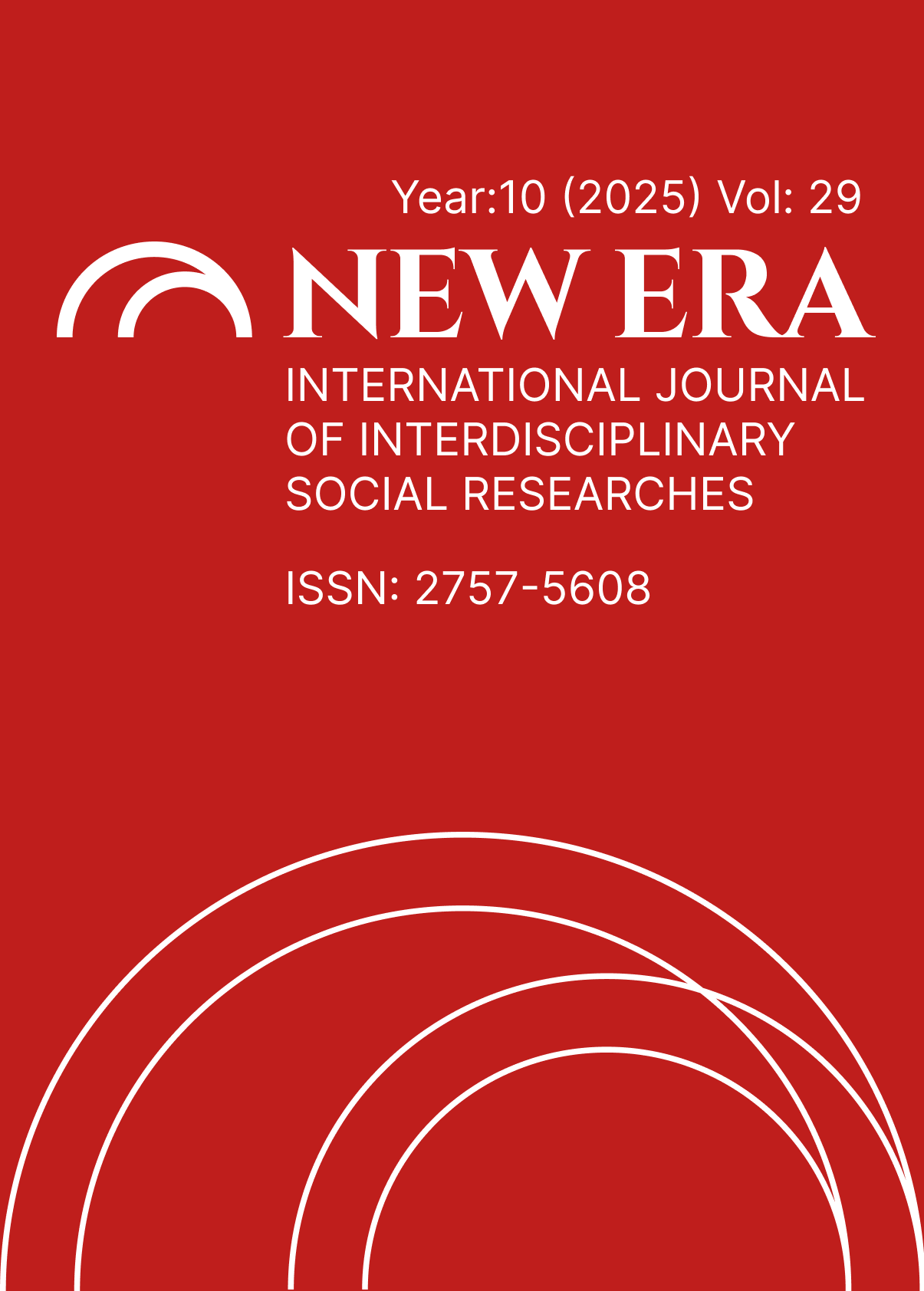MULTICULTURAL COUNSELING COMPETENCY OF TURKISH COUNSELORS BASED ON DEMOGRAPHIC VARIABLES
DOI:
https://doi.org/10.5281/zenodo.15736053Keywords:
Multicultural Counseling, Multicultural Counseling Inventory, Multicultural Counseling Competency, Experience in Counseling FieldAbstract
This study reports the multicultural counseling competency of Turkish counselors based on based on their a) gender, b) ethnicity, c) religion, d) years of experience in counseling, e) age and counselors' level of interaction with clients from culturally diverse backgrounds. The Multicultural Counseling Inventory was translated into Turkish and adapted to demographics of Türkiye’s population since the sample of the study was Turkish counselors. 97 counselors who at least have a bachelor degree or more from a Turkish counseling program and also currently work in private practice, in the K-12 school systems and in universities in Türkiye participated the study. The findings of the study showed that counselors have different multicultural counseling competency scores in terms of various demographic variables. The different scores were especially apparent in the years of experience which indicated that experience in the counseling field enhances the multicultural counseling competency of counselors. Moreover, the results revealed a statistically significant correlation between the extent of contact with culturally diverse clients and the participants' overall MCI scores. Additionally, the study demonstrated that counselors improve their multicultural counseling skills by working with clients from different cultural backgrounds. As a result, counselors are encouraged to engage with more culturally diverse clients and remain attentive, empathetic, and open-minded when providing services to enhance the quality of their counseling practice.
References
American Counseling Association (ACA) (2005). ACA Code of Ethics. Alexandria, VA: Author.
Council for Accreditation of Counseling and Related Educational Programs [CACREP] (2009). 2009 standards for accreditation. Alexandria, VA: Author.
Demir, A., & Aydm, G. (1996). Student counselling in Turkish universities. International Journal for the Advancement of Counseling, 18, 287-301.
Dogan, S. (1996). Turkiye’de psikolojik danisma ve rehberlik alaninda meslek kimliginin gelisimi ve bazi sorunlar [The development of professional identity in the counselling and guidance field in Turkey and related problems]. Psikolojik Danisma ve Rehberlik Dergisi, 1(7), 32–44.
Dogan, S. (1998). Counseling in Turkey: Current status and future challenges. Education Policy Analysis Archives. 6, 1-12.
Dogan, S. (2000). The historical development of counselling in Turkey. International Journal for the Advancement of Counseling, 22, 57-67.
Girgin, G. (2006). Cagdas egitim sisteminde ogrenci kisilik hizmetleri ve rehberlik [Student personnel services in contemporary education]. In A. Kaya (Ed.), Psikolojik danisma ve rehberlik (4th ed., pp. 2-33). Ankara, Turkey: Ani Yayincilik.
Kağnici, D. (2014). Reflections of a multicultural counseling course: A qualitative study with counseling students and counselors. Kuram ve Uygulamada Eğitim Bilimleri, 14(1), 53 -62.
Kagnici, D. (2011). Teaching multicultural counseling: an example from a Turkish counseling undergraduate program. Eurasian Journal of Educational Research (EJER), (44), 111 -128.
Korkut-Owen, F (2007). Psikolojik danisma alaninda mesleklesme ve psikolojik danisman egitimi: ABD, Avrupa Birligi iilkeleri ve Turkiye'deki durum [Professionalism in counseling and counselor education: Current status in the United States, European Union Countries, and Turkey]. In D. Owen, F. Korkut-Owen, & R. Özyürek (Eds.), Gelisen psikolojik danisma verebilirlik: Mesleklesme surecindeki ilerlemeler (Vol. 1, pp. 95- 122). Ankara, Turkey: Nobel
Kuzgun, Y. (1991). Rehberlik ve psikolojik danisma [Guidance and Psychological Counseling] (2nd ed.). Ankara: OSYM Yayinlari.
McWhirter, J. J. (1983). Cultural factors in guidance and counseling in Turkey: The Experience of a fulbright family. Personnel & Guidance Journal, 61(8), 504.
Patterson, C. (1996). Multicultural counseling: From diversity to universality. Journal of Counseling & Development, 74(3), 227.
Pedersen, P. B. (1991). Multiculturalism as a generic approach to counseling. Journal of Counseling & Development, 70(1), 6-12.
Piskin, M. (2006). Psikolojik danısma ve rehberligin dunu, bugunu ve yarini [The past, present, and future of psychological counseling and guidance] . In M. Hesapcioglu, & A. Durmus, Turkiye’de Egitim Bilimleri: Bir Bilanco Denemesi. Ankara: Nobel Yayin.
Pope-Davis, D. B., Reynolds, A. L., Dings, J. G., & Nielson, D. (1995). Examining multicultural counseling competencies of graduate students in psychology. Professional Psychology: Research and Practice, 26, 322-329.
Sheely-Moore, A. I., & Kooyman, L. (2011). Infusing multicultural and social justice competencies within counseling practice: A guide for trainers. Adultspan Journal, 10(2), 102-109.
Sodowsky, G. R., Kuo-Jackson, P., Richardson, M. F., & Corey, A. T. (1998). Correlates of self- reported multicultural competencies: Counselor multicultural social desirability, race, social inadequacy, locus of control racial ideology, and multicultural training. Journal of Counseling Psychology, 45, 256-264.
Sodowsky, G. R., Taffe, R. C., Gutkin, T. B., & Wise, S. (1994). Development of the multicultural counseling inventory: A self-report measure of multicultural competencies. Journal of Counseling Psychology, 41, 137-148.
Stockton, R., & Guneri, O. (2011). Counseling in Turkey: An evolving field. Journal of Counseling & Development, 89(1), 98-104.
Sue, D. W. (2001). Multidimensional facets of cultural competence. The Counseling Psychologist, 29, 790-821.
Sue, D. W., Arredondo, P., & McDavis, R. J. (1992). Multicultural counseling competencies and standards: A call to the profession. Journal of Multicultural Counseling & Development, 20(2), 64-89.
Tan, H. (1986). Psikolojik danisma ve rehberlik [Psychological counselling and guidance]. Istanbul: Milli Egitim Basimevi.
Downloads
Published
How to Cite
Issue
Section
License
Copyright (c) 2025 NEW ERA INTERNATIONAL JOURNAL OF INTERDISCIPLINARY SOCIAL RESEARCHES

This work is licensed under a Creative Commons Attribution-NonCommercial 4.0 International License.


